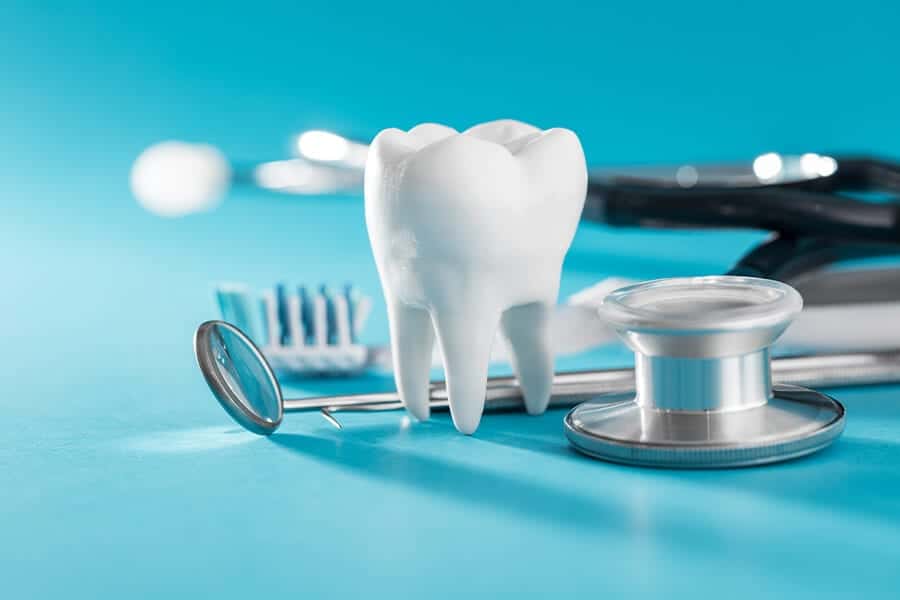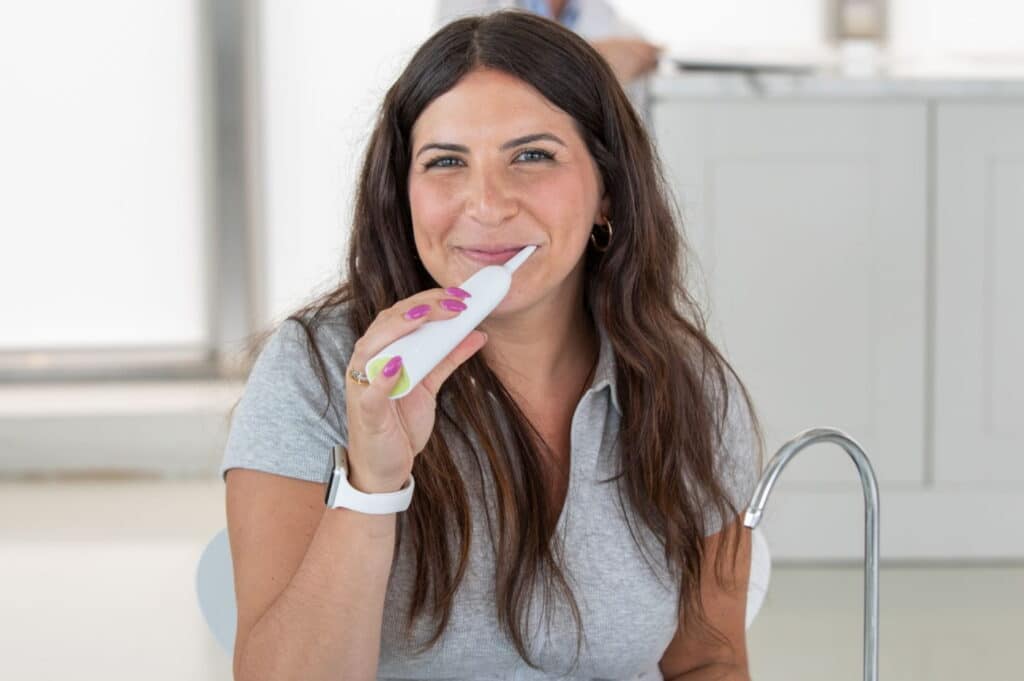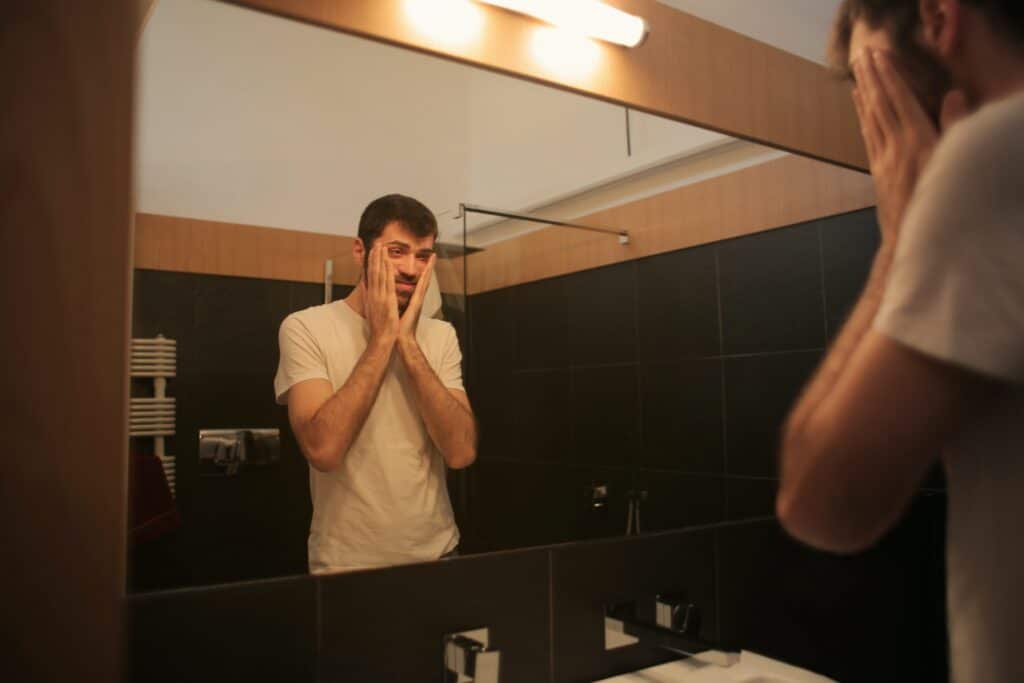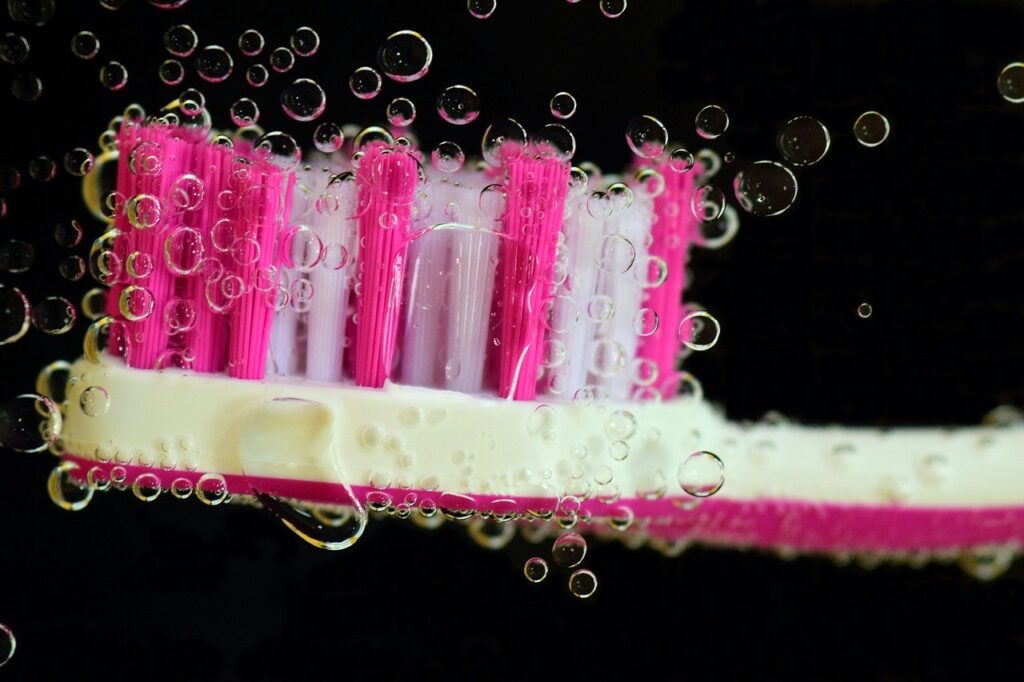Understanding at-home dental hygiene care is essential for maintaining healthy teeth and gums between dental visits. It involves a combination of daily practices and habits that promote oral health and prevent common dental issues. Here’s a comprehensive overview of key aspects of at-home dental hygiene care:
Brushing
Brush your teeth at least twice a day, preferably in the morning and before bedtime. Use a fluoride toothpaste and a soft-bristle toothbrush. Brush for at least two minutes, paying attention to all tooth surfaces, including the fronts, backs, and chewing surfaces.
Flossing
Floss once a day to clean between teeth and along the gumline, where a toothbrush can’t reach effectively. Gently guide the floss between teeth, forming a C shape around each tooth to clean both sides. This helps reduce bacteria and plaque buildup from potentially ruining your teeth and causing gum disease.
Mouthwash
If recommended by your dentist, use an antimicrobial or fluoride mouthwash. Mouthwash can help kill bacteria, freshen your breath, and strengthen enamel. However, it should not replace brushing and flossing.
Proper Technique
Use proper brushing and flossing techniques. Brush gently in circular motions and avoid aggressive scrubbing, which can harm your gums and enamel. Floss with care to avoid injuring your gums.
Nutrition
Maintain a balanced diet rich in fruits, vegetables, lean proteins, and whole grains. Limit sugary snacks and beverages, as they can contribute to tooth decay. Drink water to help rinse away food particles and maintain saliva production, which aids in oral health.
Limit Snacking
Frequent snacking can increase the risk of cavities. Try to minimize snacking between meals, and if you do snack, choose tooth-friendly options like fruits, vegetables, and nuts.
Hydration
Drink plenty of water throughout the day. Water helps rinse away food particles, stimulates saliva production, and maintains oral hydration. (ADD: If plain water feels too bland, consider the best flavored sparkling water options without added sugars or acids that could harm your teeth.)
Oral Care Tools
Choose dental tools that suit your needs. Consider using an electric toothbrush, interdental brushes, or water flossers if recommended by your dentist.
Replace Toothbrush
Replace your toothbrush or toothbrush head every three to four months or sooner if bristles are frayed. A worn toothbrush is less effective at cleaning your teeth.
Tobacco and Alcohol
Avoid tobacco and limit alcohol consumption, as both can contribute to oral health problems such as gum disease and oral cancer.
Regular Dental Visits
While at-home care is crucial, regular dental check-ups are equally important. Visit your dentist for professional cleanings, comprehensive exams, and personalized guidance on maintaining your oral health.
Tailored Approach
Every individual’s oral health needs are unique. If you have specific concerns or conditions, such as braces or dental restorations, follow the guidance provided by your dentist or orthodontist.
Should I floss or brush?
Flossing and brushing are both important components of a comprehensive oral hygiene routine, and one is not inherently “better” than the other. They serve different purposes and are equally essential for maintaining optimal oral health.
Brushing your teeth helps remove plaque, bacteria, and food particles from the surfaces of your teeth. It also stimulates the gums and helps prevent tooth decay and gum disease. Brushing should be done at least twice a day using fluoride toothpaste and a soft-bristle toothbrush. Proper brushing technique involves gently brushing all tooth surfaces, including the front, back, and chewing surfaces.
Flossing, on the other hand, targets the spaces between the teeth and along the gumline, where a toothbrush might not reach effectively. Flossing helps remove plaque and debris from these areas, reducing the risk of cavities and gum inflammation. Flossing should ideally be done once a day, using dental floss or other interdental cleaning tools recommended by your dentist.
Both brushing and flossing play complementary roles in maintaining oral health. Brushing covers the surfaces of teeth, while flossing addresses the spaces between teeth. Neglecting either component can leave areas of your mouth susceptible to plaque buildup and potential oral health issues.
Remember that at-home dental hygiene care is a proactive way to ensure the health of your teeth and gums. By practicing consistent oral hygiene habits and maintaining a healthy lifestyle, you can prevent dental issues and enjoy a bright and healthy smile. If you have questions or need personalized advice, consult your dentist or dental hygienist.
Do I really need to get a dental cleaning twice every year?
Regular dental cleanings are recommended every six months for most people as part of a comprehensive oral hygiene routine. However, the frequency of dental cleanings can vary based on individual factors such as oral health status, risk factors, and the recommendation of your dentist.
Here’s why regular dental cleanings are generally recommended:
Plaque and Tartar Removal
Even with diligent brushing and flossing, plaque and tartar can accumulate in areas that are difficult to reach. Professional dental cleanings remove this buildup, reducing the risk of cavities, gum disease and tooth abscesses leading to a root canal.
Early Detection
Regular cleanings also involve a comprehensive dental exam. Dentists can identify potential issues such as cavities, gum disease, oral cancer, or other dental problems at an early stage. Early detection often leads to more effective and less invasive treatments.
Personalized Guidance
Dental cleanings provide an opportunity to discuss your oral hygiene routine with your dentist or dental hygienist. They can offer personalized advice on brushing techniques, flossing, and any areas you may be missing during your routine.
Prevention
Professional cleanings and exams play a significant role in preventing oral health problems. Gum disease, for instance, can lead to serious health issues if left untreated. Regular cleanings can help catch and address issues before they escalate.
Overall Health
Good oral health is linked to overall well-being. Poor oral health has been associated with certain systemic conditions such as heart disease and diabetes. Regular dental cleanings contribute to maintaining both oral and general health.
While biannual dental cleanings are the norm, some individuals may require more frequent cleanings. If you have specific risk factors or ongoing dental issues, your dentist may recommend more frequent visits. Examples of such factors include a history of gum disease, a tendency to develop cavities, pregnancy, smoking, or certain medical conditions.
Ultimately, the recommended frequency of dental cleanings should be based on your individual needs and the guidance of your dentist. Open communication with your dental professional is key to determining the optimal schedule for your dental cleanings and maintaining optimal oral health.

Dr. Elizabeth Wakim, DDS, is the founder of Enhanced Wellness. She’s a compassionate and highly-regarded dentist with her own practice in Washington, Pennsylvania, known for providing modern, comprehensive dental care, botox and facial aesthetics with a focus on patient comfort and anxiety reduction, serving general, cosmetic, and pediatric dentistry needs.









